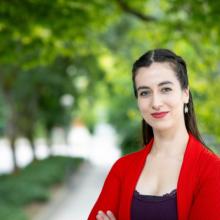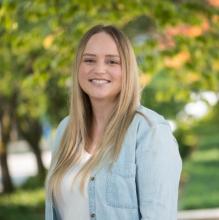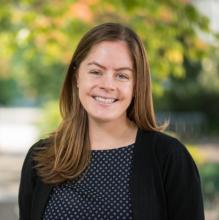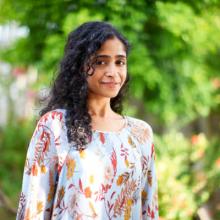Undergraduate students in biology need to be prepared for their future. One skill set many of them are missing is basic level programming. Melissa's research is focused on re-designing and testing statistics courses to incorporate a programming language using innovative instructional practices. She hopes to change how biostatistics is taught.
Research Description
Dissertation title: Species Interactions and Dispersal in Bromeliad Metacommunities
My research focuses on improving the instruction of statistics by teaching R programming to undergraduate students in the biology department. Statistics courses in the undergraduate biology program are mainly taught using statistical software that is not used in the industry or in graduate school. Furthermore, graduate school forces most students to learn the R programming language by themselves, making the learning process very hard. With the collaboration of the bio statistics course instructors, we decided to modify the courses to prepare undergraduate students better. My two goals are, first, to re-design beginner and intermediate level statistics courses to include R programming in their curriculum and second, to evaluate the level of support the students feel in their learning process.
What does being a Public Scholar mean to you?
To me, being a public scholar means recognizing that my academic work can affect people outside of the academia and using that to improve people's life. While many of our academic pursuits may not directly affect peoples lives, some pursuits can indirectly inform or affect the public. I realized I could be a public scholar when I took interest in the way that undergraduates learn. I found gaps at the graduate level that could be addressed at the undergraduate level and thereby affect a broader group.
In what ways do you think the PhD experience can be re-imagined with the Public Scholars Initiative?
The public scholars initiative supports greater diversity of avenues that graduate students can take. This in turn can change the PhD experience by allowing graduate students to envision different outcomes from their graduate education. The public scholars initiative provides a platform to transform the PhD experience from a purely academic pursuit to a community oriented endeavour.
How do you envision connecting your PhD work with broader career possibilities?
I envision that my graduate work on teaching as research will provide me opportunities to join more closely the teaching community. The skills I develop during this project will allow me to be enter a the broader teaching community with a stronger background that just with my biology degrees.
How does your research engage with the larger community and social partners?
Students and instructors of many areas will benefit from this research. Not only biology students at UBC will benefit, but I wish to make my research available to as many instructors as I can in order to facilitate their lives and improve teaching techniques.
Why did you decide to pursue a graduate degree?
I am fascinated with the complexity of the natural world. I wanted to continue learning and discovering the intricacies of ecology, and a graduate degree provided me with the platform to do it. During my graduate degree I have been able to discover and develop new passions that I wouldn't have been able to pursue outside of academia.
Why did you choose to come to British Columbia and study at UBC?
I chose to study at UBC because not only it is one of the best research institutions in Canada and the world, it is also interested in improving teaching for undergraduate students. I wanted to work in an environment that allowed me to work in several of my interests. At UBC I was able to continue pursuing my love for ecology with Prof Diane Srivastava and explore new avenues such as researching teaching practices.
To me, being a public scholar means recognizing that my academic work can affect people outside of the academia and using that to improve people's life".




